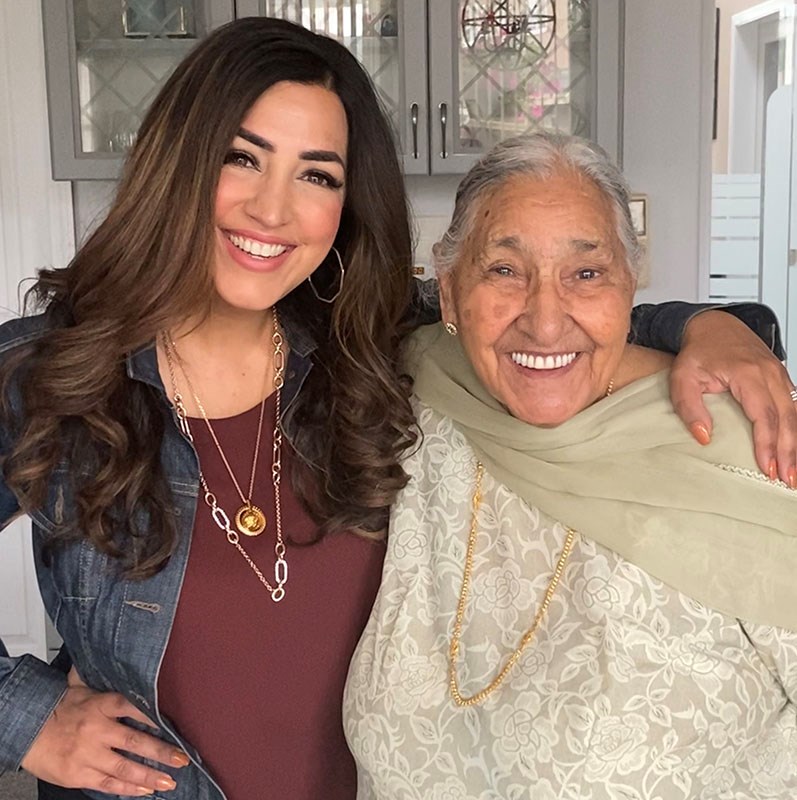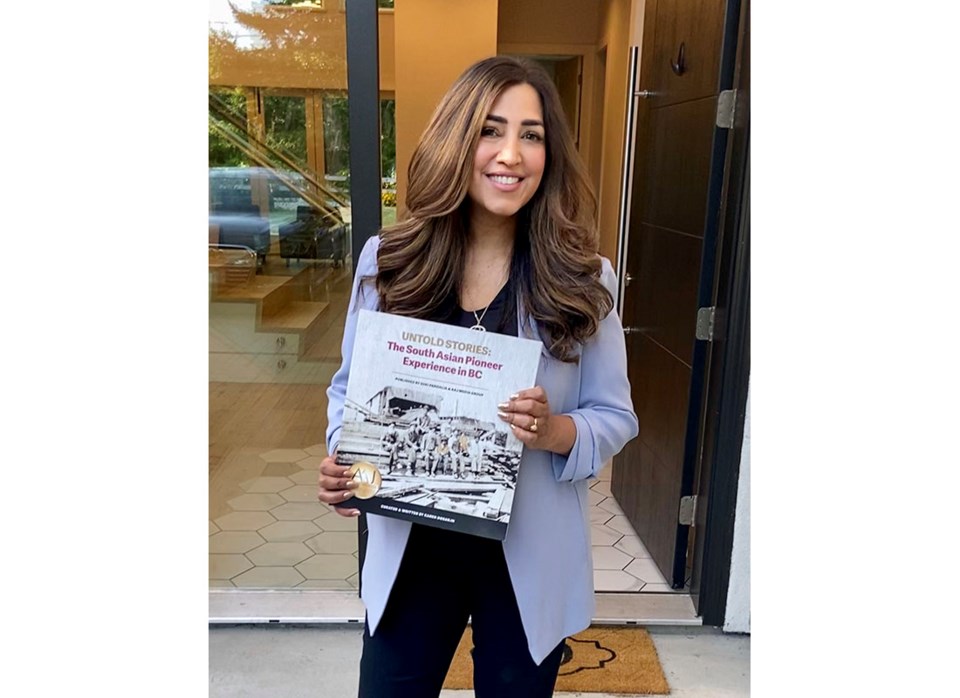Writing more than 70,000 words over 250 pages wasn’t nearly as difficult as the journey early South Asian pioneers went through to start a new life in Canada, according to Richmond author Karen Dosanjh.
Dosanjh, who was born and raised in Richmond, sees her hometown as a place of many firsts including school, volunteer experience and work – an “exciting and fairly fun” life.
However, her parents’ and extended family, who first immigrated to Canada, can’t say they had similar experiences.
Dosanjh’s first book, titled Untold Stories: The South Asian Pioneer Experience in B.C., is a collection of stories from 32 pioneer families in Canada dating back to the early 1900s.
The stories, she noted, are told by previously “unheard voices” about the struggles and resilience of immigrants from Punjab, India. It’s a book she hopes will fill a gap and connect the older generation with today’s youth.

“It’s important for youth now to see how the earliest settlers lost a lot of their identity and who they were to develop the community as it is now,” said Dosanjh, adding that she hopes these youth “don’t take anything for granted.”
“I want to inspire the next generation of South Asian storytellers … we have these living libraries sitting at our kitchen tables and it’s a shame if we don’t take a moment to ask them about their journeys and what their life story has been like.”
When the book was published, it was shared with teachers at LA Matheson secondary, a Surrey high school. The teachers were so inspired, they decided to create a teacher’s guide for educators across B.C. to use it as an educational resource.
Asked what sparked Dosanjh’s first step to write the book, she said her passion for preserving the foundation of history started when she and her extended family, the Johal family, celebrated the centennial of their forefather Gian Singh-Johal, one of the first South Asian settlers to immigrate to Canada, arriving in 1906.
At the event in 2006, she discovered the many personal sacrifices her elders made along the way to get to Canada and she realized there were very few history books or archives with information or stories about these journeys.
“(These elders) weren’t welcome with open arms in the country in the early 1900s,” said Dosanjh, adding that predominantly Punjabi men were allowed to come to fill in for labour-intensive jobs in railway, agricultural and sawmill communities.
“These men were paid significantly less than non-minority workers, they were often forced to segregate and live in bunk houses and there were many cases documented of assault.”
Dosanjh told the Richmond News the time she spent with elders from her community, who were in their 80s and 90s, was heart-warming, yet heart-breaking at the same time.
“It was incredibly touching that they trusted me with these images and also their stories,” said Dosanjh.
“The day the book was published, I delivered one to each of the pioneer families, and to see the stories of their parents and the emotional connection to them is something I cannot explain. It was really special.”



